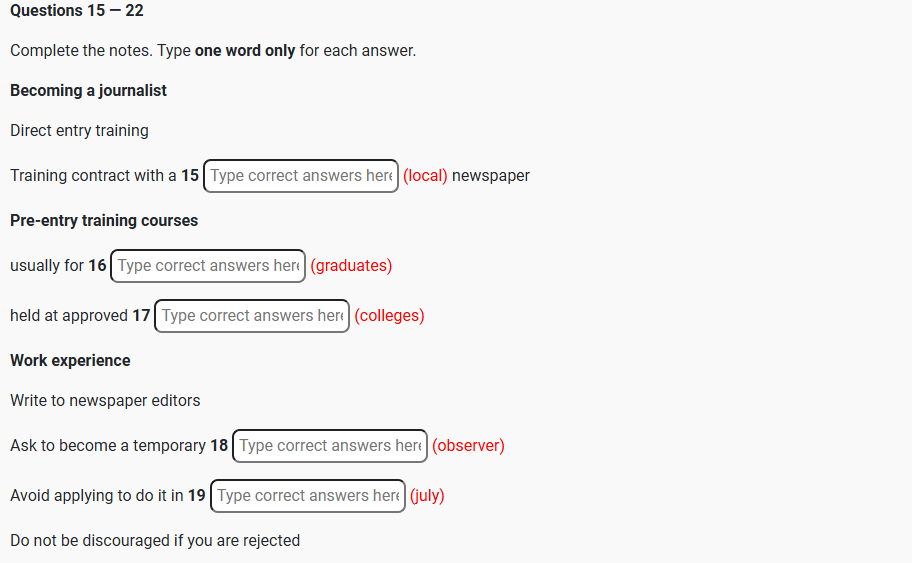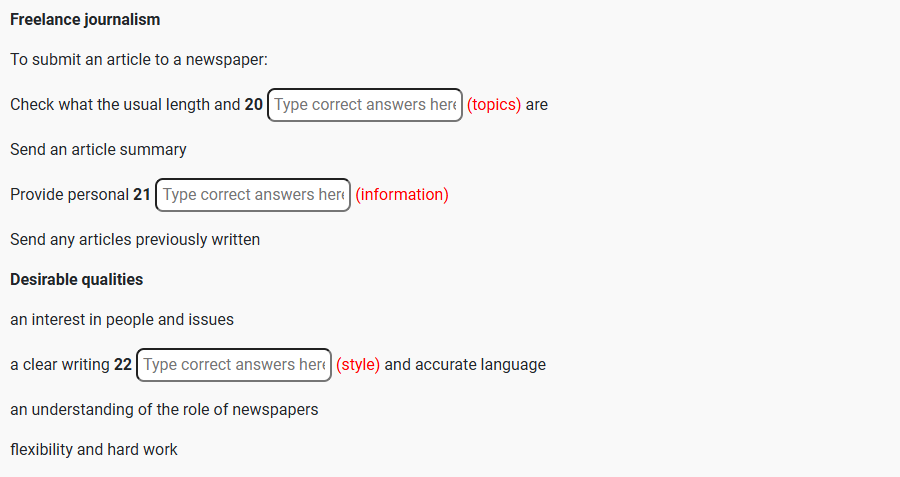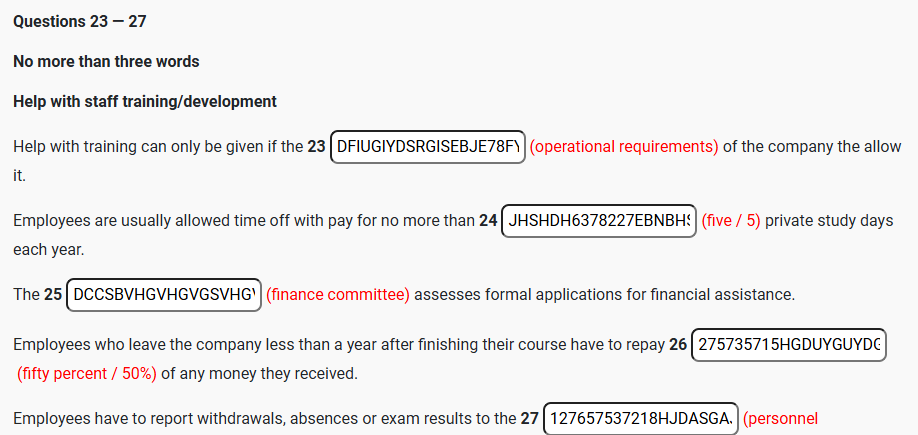

IELTS READING A career in journalism Reading Practice Test has 10 Questions belongs to the Journalism / Media Studies subject.. |
How do I get into journalism?
Trainees come into the industry by a variety of routes. Some are recruited directly by a newspaper in their local area and carry out their basic training under the terms of a training contract. This is known as direct entry.

However, the majority of trainees are recruited after attending vocational education and training courses. These are normally for graduates. Such courses are generally run by colleges accredited by the National Council for the Training of Journalists. This route is known as pre-entry.
Some colleges will grant places to people on pre-entry courses only if they have already had a work experience placement at a newspaper. Therefore it would be sensible for you to write to a number of local newspaper editors to ask if they will allow you to join their team of reporters as an observer for a few days. Explain why you think you would make a good reporter and try to pick a time other than July, when pressure on work experience places is at its greatest. You should try to be the applicant who stands out as the most committed to newspaper journalism, and the most able. But do not be put off if you receive rejection letters, as there is strong competition for places. Editors appreciate and respect determination and persistence.

Many people ask about becoming freelance journalists. To begin with, you must know the paper you’re hoping to write for; the article should be approximately the same number of words normally employed by the editorial column in that paper, and on one of the topics that are most likely to be used. Approach the editor in writing. Send a written synopsis of your article, enclosing some information about yourself and, if possible, some other articles you have had printed, whether in your local paper or in your student magazine.

What qualities do newspaper editors look for?
To convince an editor that you are worth appointing you will need to be able to demonstrate:
• an interest in people
• an interest in current affairs
• an ability to write in a style which is easy to understand
• good spelling, grammar and punctuation
• an appreciation of the part newspapers play in the community and society
• a willingness to accept irregular hours, and work under pressure to meet deadlines.
Boost Your Score: Practice IELTS Online with IELTS Simulator.
![]()
8439000086
8439000087
7055710003
7055710004
IELTS Simulation 323 GMS Road, Near Ballupur Chowk, Dehradun, India
![]()
email: info at ieltsband7.com